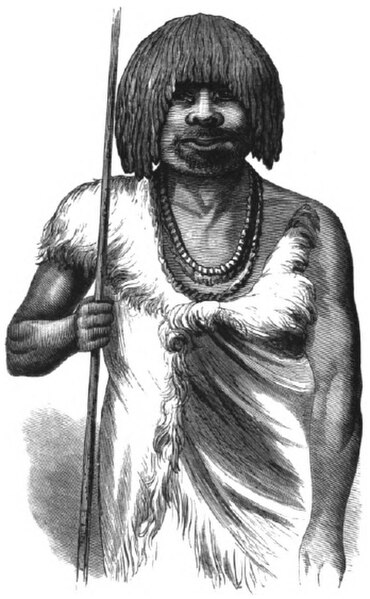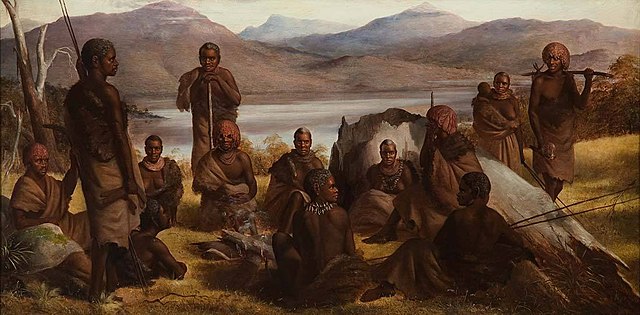Fanny Cochrane Smith was an Aboriginal Tasmanian, born in December 1834. She is considered to be the last fluent speaker of the Flinders Island lingua franca and the Melukerdee language, and her wax cylinder recordings of songs are the only audio recordings of any of Tasmania's indigenous languages. Her recordings were inducted into the UNESCO Australian Memory of the World Register in 2017.
Fanny Cochrane Smith
The Aboriginal Tasmanians are the Aboriginal people of the Australian island of Tasmania, located south of the mainland. For much of the 20th century, the Tasmanian Aboriginal people were widely, and erroneously, thought of as being an extinct cultural and ethnic group that had been intentionally exterminated by white settlers. Contemporary figures (2016) for the number of people of Tasmanian Aboriginal descent vary according to the criteria used to determine this identity, ranging from 6,000 to over 23,000.
Illustration from The Last of the Tasmanians – Wooreddy, Truganini's husband
A picture of the last four Tasmanian Aboriginal people of solely Aboriginal descent c. 1860s. Truganini, the last to survive, is seated at far right.
Robert Dowling, Group of Natives of Tasmania, 1859. Critic Bernard William Smith assessed the work as a "history painting in the full sense of the word", with the natives "seated – emblematic of their situation – around the dying embers of a burnt-out log near a great blackened stump, and in the far left corner there is a leafless tree with shattered branches."
Proclamation (c. 1828–30) by Sir George Arthur to Aboriginal Tasmanians, claiming that they would receive equal treatment before the law.





